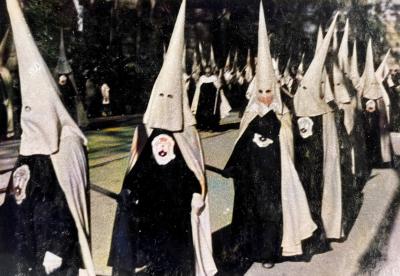How do political changes influence language recognition and usage in Spain?
Similar Topics
political changes
language recognition
spain
regional autonomy
national identity
spanish constitution 1978
catalonia
mallorquín
educational policy
linguistic diversity
Political changes in Spain significantly influence language recognition and usage, particularly with the emergence of regional autonomy and national identity movements. Following the transition to democracy in the late 1970s, the Spanish Constitution of 1978 recognized the linguistic diversity of the country, allowing several autonomous communities, including Catalonia, Galicia, and the Basque Country, to establish their own official languages alongside Spanish (Castilian). This recognition led to the promotion of regional languages in education, government, and media, fostering a revival of cultural identity and linguistic pride.
In Mallorca, which is part of the Balearic Islands, the official status of Catalan (known locally as Mallorquín) has been a focal point of political discourse. Political parties that emphasize regional identity typically advocate for increased use and protection of Mallorquín, leading to its incorporation into school curriculums and public services. Conversely, national political shifts, such as the rise of parties advocating for a more centralized Spain, may lead to tensions regarding language policies, potentially undermining the use of regional languages.
Thus, political landscapes can either support or hinder the vitality of regional languages through legislation, educational policy, and public funding, ultimately shaping the linguistic landscape of regions like Mallorca.
In Mallorca, which is part of the Balearic Islands, the official status of Catalan (known locally as Mallorquín) has been a focal point of political discourse. Political parties that emphasize regional identity typically advocate for increased use and protection of Mallorquín, leading to its incorporation into school curriculums and public services. Conversely, national political shifts, such as the rise of parties advocating for a more centralized Spain, may lead to tensions regarding language policies, potentially undermining the use of regional languages.
Thus, political landscapes can either support or hinder the vitality of regional languages through legislation, educational policy, and public funding, ultimately shaping the linguistic landscape of regions like Mallorca.
🧩 Related Questions
Related Question
Are there any fruit-picking experiences or tours available for travelers interested in Mallorca's local produce?
Related Question
How might the hand-pounding technique contribute to the slightly coarse texture of the sauce?
Related Question
What efforts are being made to promote the use of the Catalan language in Mallorca?
